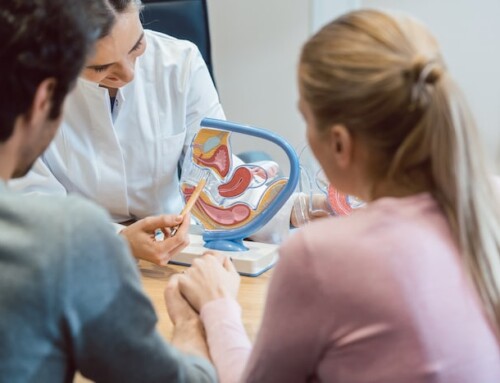Same Sex couples and Fertility Treatment

When we think about conception and same sex couples, it automatically brings up that barrier of not being able to get the sperm and the egg together naturally, which may have been an issue in the past, but it certainly is not now. For male couples it was even harder because the whole thing relies upon finding a willing surrogate to carry the baby. This is why adoption was often the only route for lesbian women and homosexual men, but now the outlook is very different and having a child who is biologically related to you is absolutely possible.
Happily, sweeping advances in fertility treatment mean that same sex couples can now boost their chances of having a successful pregnancy of their own. Obviously, the way forward is different for male couples and female couples, but the treatment available for both is comprehensive, and at the forefront of fertility medicine advances. So, what are the options for a same sex couple wanting to start (or add to) a family? Here, we’ll talk through the processes and available treatments for both male and female sex same couples, and what options are out there for having a child.
Same sex female couples.
For women there’s obviously a slight advantage here in that one of you will probably be able to carry the pregnancy, so there’s a far lower rate of needing a surrogate (i.e. another woman to carry the pregnancy). IVF has the same result, but there are more invasive processes to go through The old methods involving donor sperm and a turkey baster can now be abandoned in favour of more sophisticated fertility treatment. The eggs can be from your same sex partner, or donated ones.
ICSI.
This is the most common – and successful – treatment used for male infertility when the cause of it is sperm related. It’s usually done as part of IVF, but there are other reasons too. The sperm can be collected as normal, or surgically, either from the epididymis or testicles, if there’s a blockage preventing the sperm from reaching the ejaculate, which might be the case if there’s injury or disease.
Other reasons for having it include:
- If your sperm count is very low.
- If you’ve had previous IVF cycles and very few, or none, of the eggs were fertilised.
- If the shape of the sperm is abnormal (poor morphology).
- If the sperm aren’t moving normally (poor motility).
- If you’re using frozen sperm which isn’t of the best quality.
- If you want to have the embryos tested for genetic abnormalities.
What are the differences between ICSI and IVF?
The treatments are almost exactly the same, the difference being that instead of mixing the sperm and the eggs together and leaving them to fertilise naturally, a single sperm is injected into the egg by a skilled embryologist. It often gives the maximum chance of fertilisation because it bypasses any potential problems that there might be in getting the sperm inside the egg. The chances of success are very much the same as IVF.
Male same sex couples.
Obviously IVF is the only way forward to have a biological child, but there’s also an added complication in that you will need a surrogate to actually carry the baby. Surrogacy is where a woman carries and gives birth to a baby for another person, or couple. A surrogate can either use their own eggs, or donated eggs, and the sperm of one partner. There are two options here:
- Full surrogacy (also known as host or gestational surrogacy), where a woman will use donated eggs, meaning that here will be no genetic connection between the woman and the baby.
- Partial surrogacy (also known as traditional or straight) and this is where the surrogate’s eggs are fertilised with the sperm of one of the intended parents.
The chances of a successful pregnancy through IUI are around 1/3 of the chances through IVF. However, it is considerably cheaper, costing around ¼ of what an IVF cycle would. Although we don’t provide a surrogate matching service, we are happy for you to bring your own surrogate. We have a very experienced team on hand in the Cyprus IVF Centre who can give detailed and comprehensive information and advice on what might be the best way forward for you.
The most important thing here is that same sex couples have the same chance of a successful pregnancy as a heterosexual couple would, which is thanks to the advances in fertility medicine. If you’re part of a same sex couple then do get in touch with us and we’ll be delighted to get back to you and answer any general, or specific, questions that you might have.





